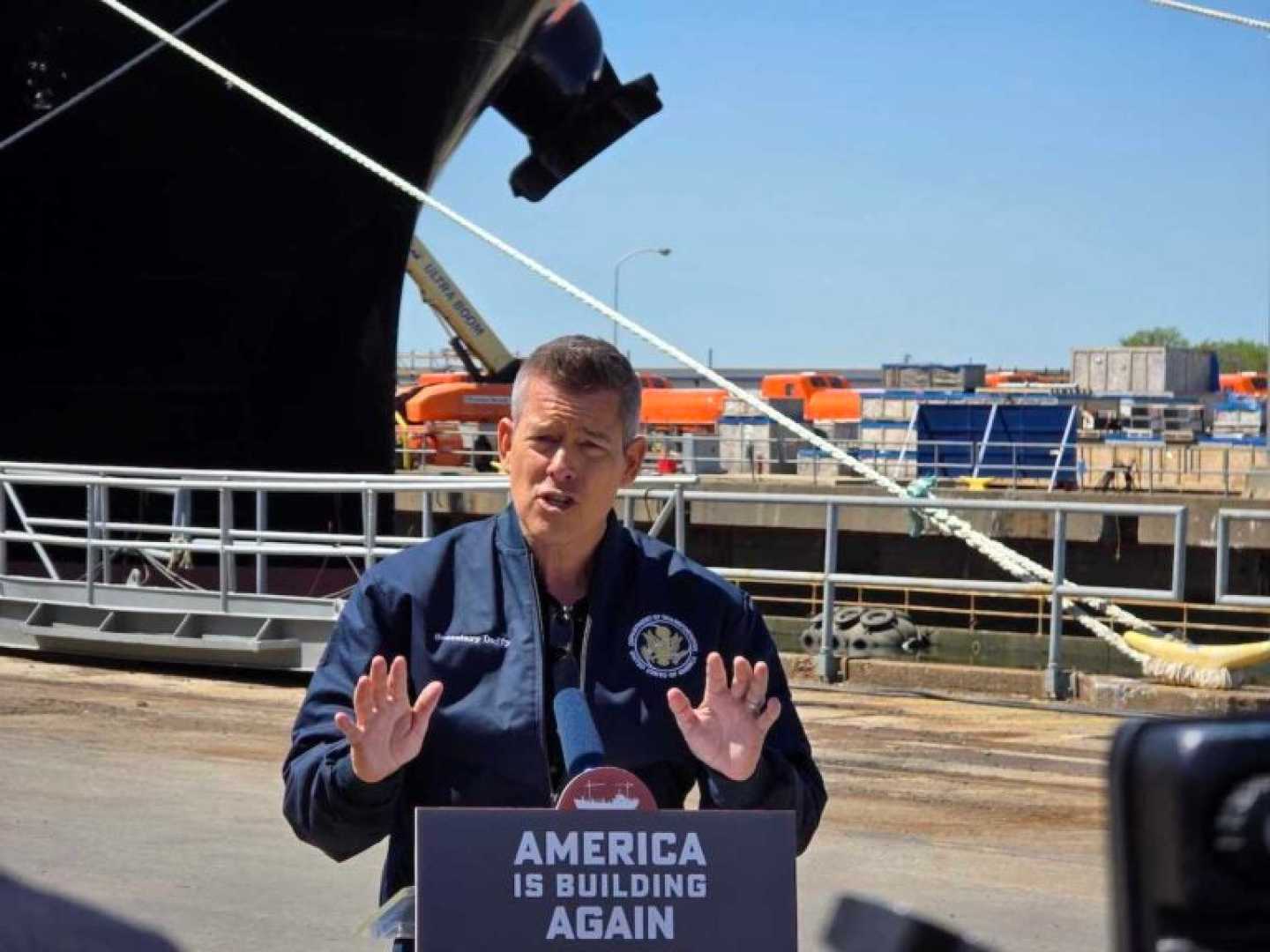Politics
Transportation Secretary Defends Federal Layoffs Amid Controversy in Philadelphia

PHILADELPHIA, Pa. — During a visit to the Hanwha Philly Shipyard on Monday morning, Transportation Secretary Sean Duffy and U.S. Sen. Dave McCormick discussed matters concerning manufacturing, tariffs, and federal layoffs. Duffy defended the cuts made by the Department of Government Efficiency, asserting that critics are misinterpreting the situation.
As the Biden administration faces criticism following recent federal layoffs, Duffy suggested that the narrative surrounding job losses should shift to focus on potential benefits. “Efficiency, looking at those who might lose their job, actually, that’s the wrong way to look at it,” Duffy stated. “There’s going to be more money flowing into the great projects that your state talks about all the time.”
The remarks were made during a news conference after Duffy and McCormick toured the shipyard, where they spoke in front of the ship named State of Maine. They underscored the importance of U.S. manufacturing and commented on ongoing tariff discussions.
“Trade is unfair,” Duffy remarked, referring to tariffs affecting U.S. relations. These tariffs, including a 145% rate on imported goods from China, have been a contentious point, especially with businesses expressing concerns about economic stability. McCormick acknowledged the complicated dynamics of tariffs, mentioning his discussions with companies like Mack Trucks regarding their uncertainties in light of tariff impacts.
“We’re in the middle of negotiations, and we’re in a strong position because we’re the most significant, largest, most dynamic economy,” McCormick conveyed, emphasizing the need to reassess agreements to stabilize business conditions amid shifting economic policies.
Despite the federal layoffs affecting about 1.4% of the workforce under the Department of Transportation, Duffy reassured that the released funds are not wasted and could support essential infrastructure developments.
Moving forward, both leaders aim to address ongoing issues related to tariffs and job security while promoting a vision for enhanced domestic manufacturing.












